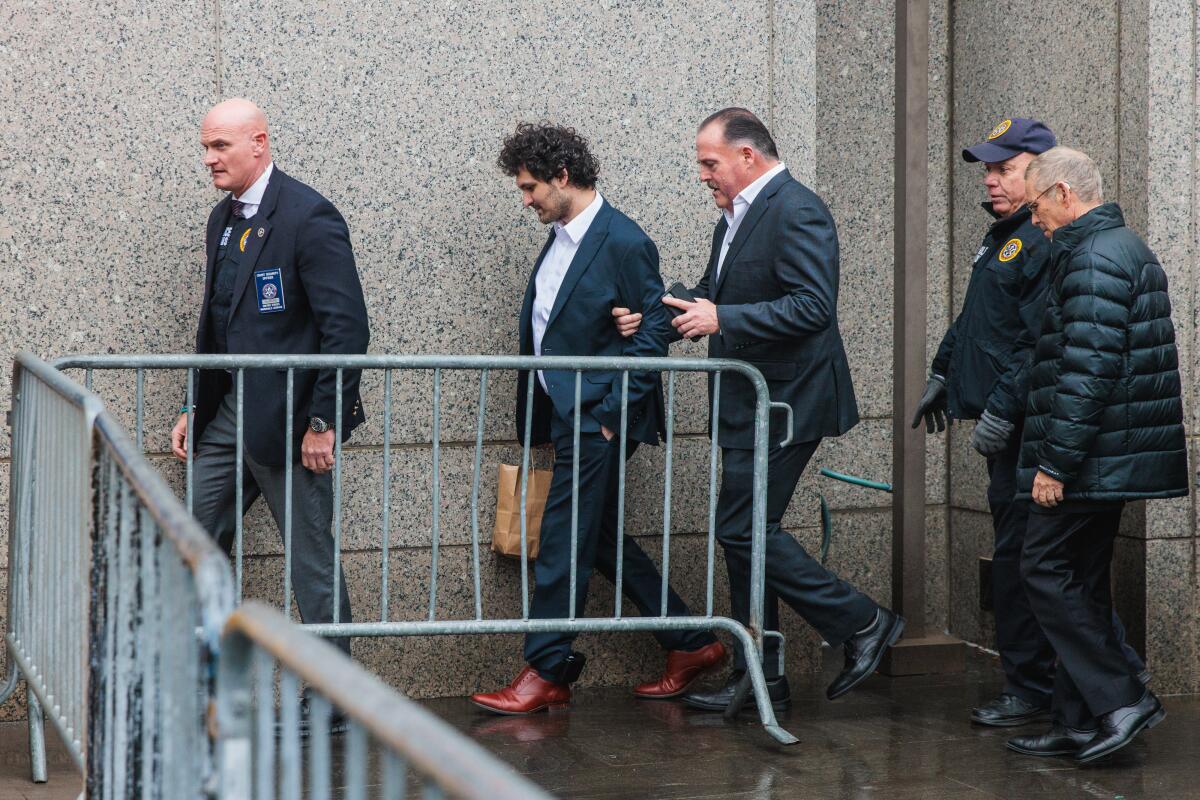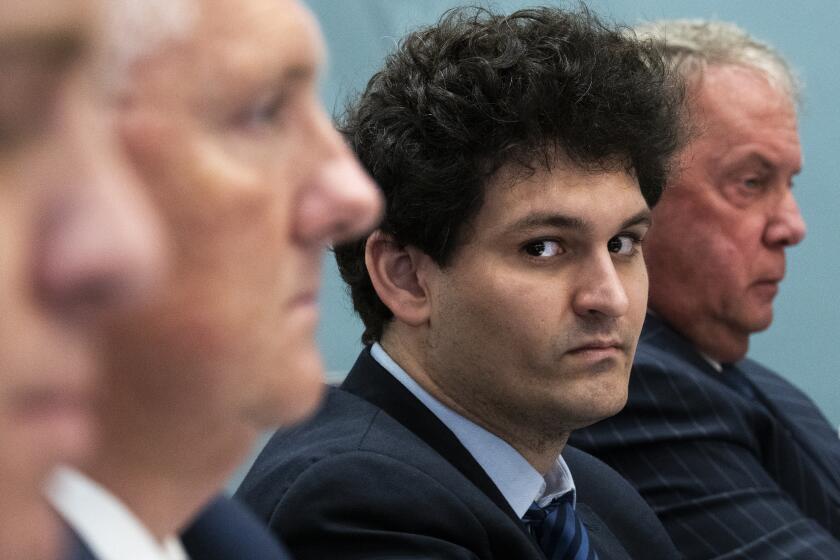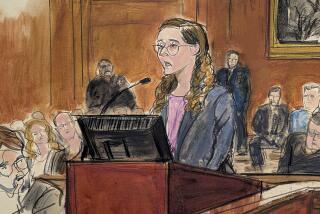Sam Bankman-Fried to plead not guilty to fraud at Jan. 3 hearing

- Share via
Disgraced crypto exchange founder Sam Bankman-Fried plans to plead not guilty to fraud after being charged with orchestrating a years-long scam at FTX.
The 30-year-old is due to appear in federal court in Manhattan on Jan. 3 and is expected to enter pleas of not guilty to eight offenses, including wire fraud, according to a person familiar with the case.
A spokesperson for Bankman-Fried declined to comment about the plea plans.
The news was first reported by the Wall Street Journal.
Bankman-Fried was arrested in the Bahamas earlier this month after the U.S. filed an indictment accusing him of misappropriating billions of dollars of customer funds at FTX.
This would-be crypto trillionaire promised to give away his wealth, but did he ever really mean it?
After being extradited to the U.S., he was released from custody on a $250-million bail package. He is currently living at his parents’ home in California.
It’s common for defendants to plead not guilty at an arraignment, giving them time to explore possible legal and factual defenses, even if they later decide to change their plea to guilty.
A not-guilty plea would open up the door to a discovery process, which would give Bankman-Fried a better idea of the evidence the government has collected to prosecute him.
At the heart of the government’s case are two of Bankman-Fried’s closest associates, Caroline Ellison and Gary Wang. Both pleaded guilty to fraud over their roles in moving customer funds between FTX and sister trading house Alameda Research.
Ellison, Alameda’s former chief executive, and Wang, FTX’s chief technology officer, both have reached cooperation agreements with prosecutors, a significant blow to Bankman-Fried’s case.
The cryptocurrency billionaire employed several former regulators who aided his efforts to woo top CFTC officials, emails obtained by the Los Angeles Times show.
Bankman-Fried can eventually decide to change his plea if he reaches a deal with the government or decides a defense is unlikely to succeed and focuses on getting the most lenient sentence possible.
If he maintains his not-guilty plea, the case would end up at trial. A majority of criminal cases don’t make it to trial.
Because Bankman-Fried is free on bail, he’s able to meet with his lawyers and focus on a defense, which would be much more difficult if he were jailed before trial.
More to Read
Inside the business of entertainment
The Wide Shot brings you news, analysis and insights on everything from streaming wars to production — and what it all means for the future.
You may occasionally receive promotional content from the Los Angeles Times.












